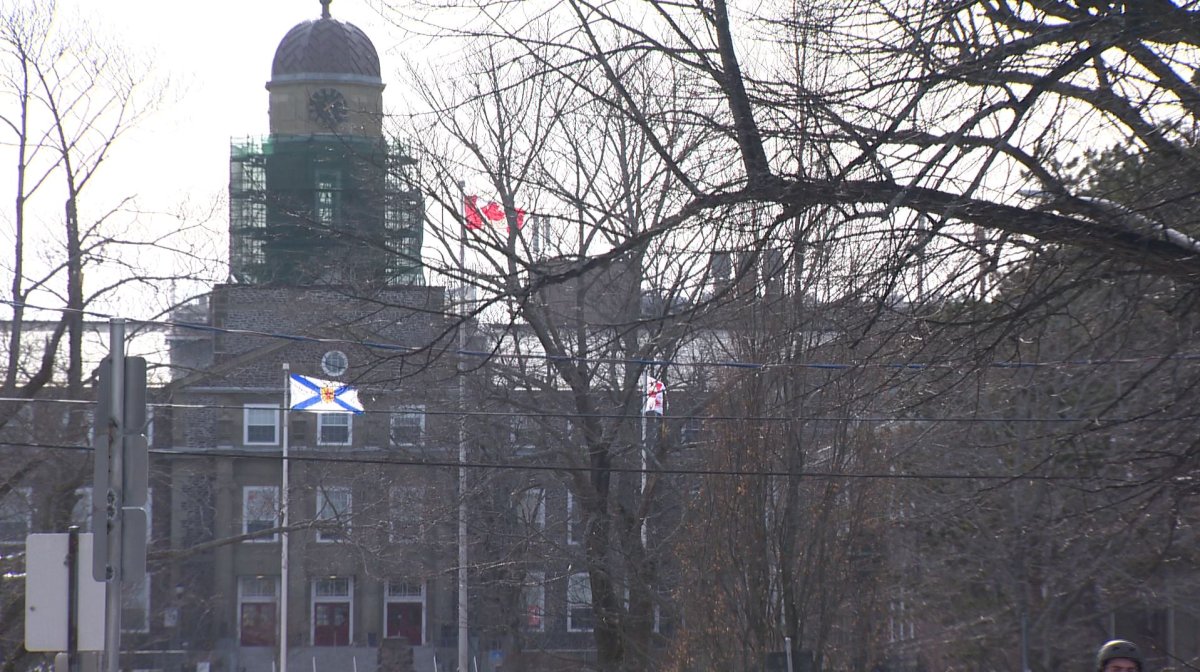Tuition fees will increase by three per cent, and the budget for faculties and service units will decrease by one-and-a-half per cent at Dalhousie University next year, should a draft operating budget plan pass.

Dalhousie University’s Budget Advisory Committee (BAC) recommended the plan which, as stated on a website for the school’s budget matters, would result in a $427.8-million balanced budget for 2018-2019.
READ MORE: Nova Scotia students demand free post-secondary school on Day of Action
“We’ve had students telling us that they’ve had to choose between textbooks and food, really difficult choices that I don’t think the university understands really what the impacts are,” Amina Abawajy, president of the Dalhousie Student Union, said during an interview on Tuesday.
She called the proposed increase and decrease “disappointing.” The union’s goal is for the school to get more government funding to eliminate tuition fees, she said.
“I think it’s extremely unfortunate that students yet again, year after year, are being asked to pay more for less,” Darren Abramson, president of the Dalhousie Faculty Association, said during a phone interview.

Get breaking National news
He said the organization, which represents about 1,000 members, has studied the matter closely, and the tuition fee increase is not a financial necessity but rather “choices” by the school’s administration.
The school spends more on non-academic staffing compared to academic staffing than comparable universities, and there’s a declining percentage of revenue being spent on academic staff, Abramson said.
READ MORE: Dalhousie University proposed tuition hikes ‘will create a lot of mental stress’
“We think that a good measure of efficiency of a university is what percentage of the actual revenue of a university goes to people doing the academic work there, and we give Dalhousie University, I don’t even know if it’s worth calling a passing grade in that respect,” said Abramson.
“We see that Dalhousie has made a priority of erecting new buildings, and refurbishing old ones, and we think that while that’s an important thing to do, it’s very important to never do those things at the expense of the academic activities at the university. After all, what are university buildings for, if we don’t have students and professors doing teaching and research in those buildings?”
The school was contacted for an interview by Global News in the afternoon at about the same time other organizations in this article were asked, but no one was available.
READ MORE: University tuition fees in Canada rise 40 per cent in a decade
“Projected operating costs increase at a faster rate than anticipated revenue. Balancing the budget requires the university to reduce costs and identify additional revenue sources while being strategic in where it makes important investments,” Dalhousie said in a statement provided by spokesperson Janet Bryson.
“The [three per cent] tuition increase is the same as in recent years, while the [one-and-a-half per cent] budget reduction to faculties and service units is the lowest it’s been in over a decade.”
The committee recommends adding half-a-million dollars to student assistance funding in the budget, it read.
“While Dalhousie University has a lot to say about equity, I feel that this issue of raising tuition fees is the most inequitable thing that dominates all the other attempts to be portrayed as a just and equitable place. This to me is much, much more important than other issues involving equity,” Abramson said.
The school’s board of governors is scheduled to vote on the budget in June.
- Justin Trudeau headed to UN Summit of the Future amid international instability
- Canadian government’s satellite deal has Tories calling for Elon Musk involvement
- Activists call for Boogie the monkey to be removed from Ontario roadside zoo
- Despite good economic news, experts warn the pain’s not over yet








Comments